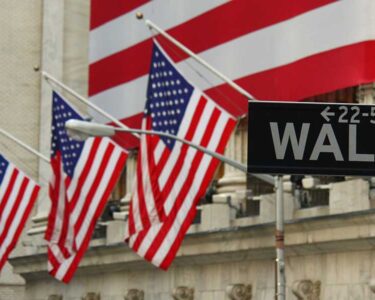US Clearinghouse DTCC Acquires Blockchain Startup Securrency in $50 Million Deal

Today, the Depository Trust & Clearing Corporation (DTCC) agreed to acquire blockchain startup Securrency Inc. in a deal worth around $50 million, according to a Bloomberg report.
The acquisition is part of DTCC’s broader push into blockchain technology and services for functions like post-trade processing of tokenized digital assets.
The acquisition deal is expected to close in the coming weeks with 100 Securrency employees set to join DTCC after the acquisition.
Strategic Move Into Blockchain Technology
DTCC CEO Frank La Salla told Bloomberg that Securrency’s technology could allow DTCC to enable the issuance and trading of securities like exchange-traded funds (ETFs) on blockchain networks.
La Salla stated that DTCC “will always be looking at new tech, and we have to because of the role we play as a strategic infrastructure provider to the industry.”
The acquisition represents one of DTCC’s biggest moves into blockchain and distributed ledger technology, which supporters say could transform financial markets by streamlining complex post-trade processes.
According to a March 2023 estimate by Citigroup Inc. analysts, as much as $5 trillion worth of traditional financial assets could be tokenized and represented on blockchain networks by 2030.
After the acquisition, Securrency will be renamed DTCC Digital Assets and continue to be led by Securrency CEO Nadine Chakar, who will also join DTCC’s management committee.
“I have found in the past 12 months the conversation has gotten much more grounded and sober around what distributed ledger technology can and should be used for,” said La Salla on the gradual maturation of blockchain in finance.
Curbing Blockchain Complexity
In recent years, major banks and financial institutions have built their own proprietary blockchain platforms to perform post-trade functions similar to Securrency’s technology. This has raised concerns around duplication of efforts and increased complexity, however, as the various blockchain systems are often not interoperable.
La Salla noted that “the industry is graduating from this experimenting phase to how we work together.”
Asset tokenization can simplify trading and post-trade settlement, while improving accessibility and liquidity in markets. The process involves representing real-world assets like company shares as digital tokens on a blockchain.
For example, Securrency’s technology could allow the creation of ETFs as tokenized securities that are traded and settled on a distributed ledger, rather than traditional market infrastructure.
This could streamline cumbersome aspects of today’s post-trade systems, including reconciliation and clearing of asset transactions. DTCC seems to be positioning itself to play a key role in the asset tokenization process as the technology gains more mainstream adoption.






